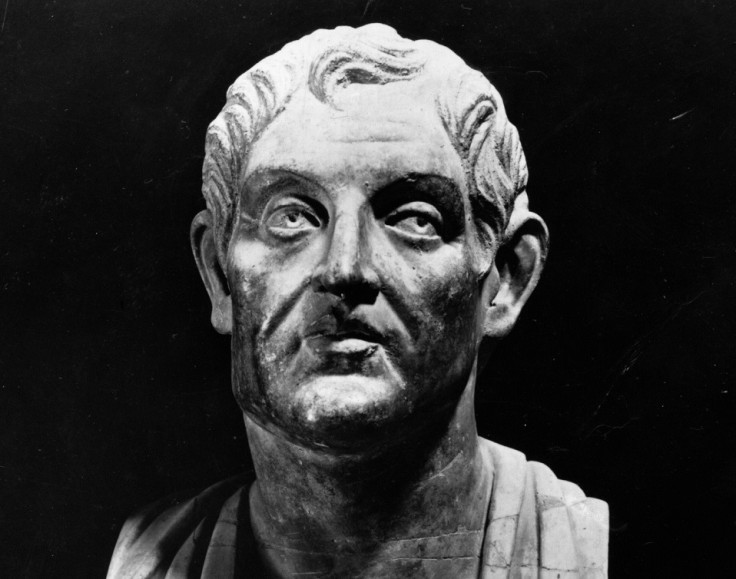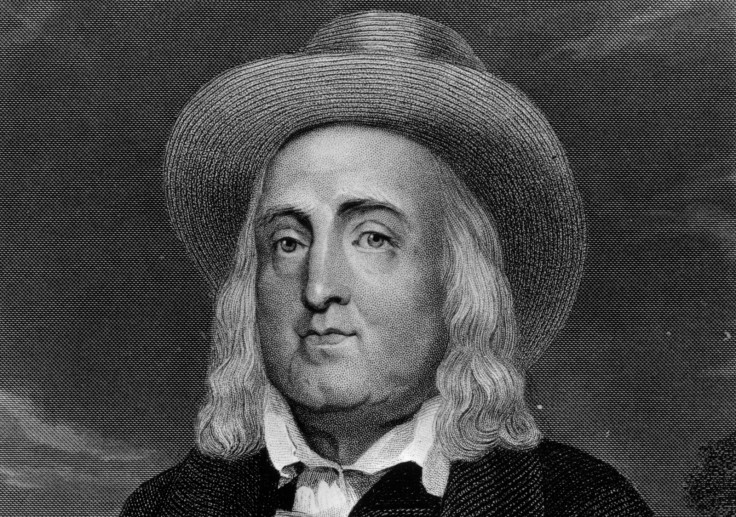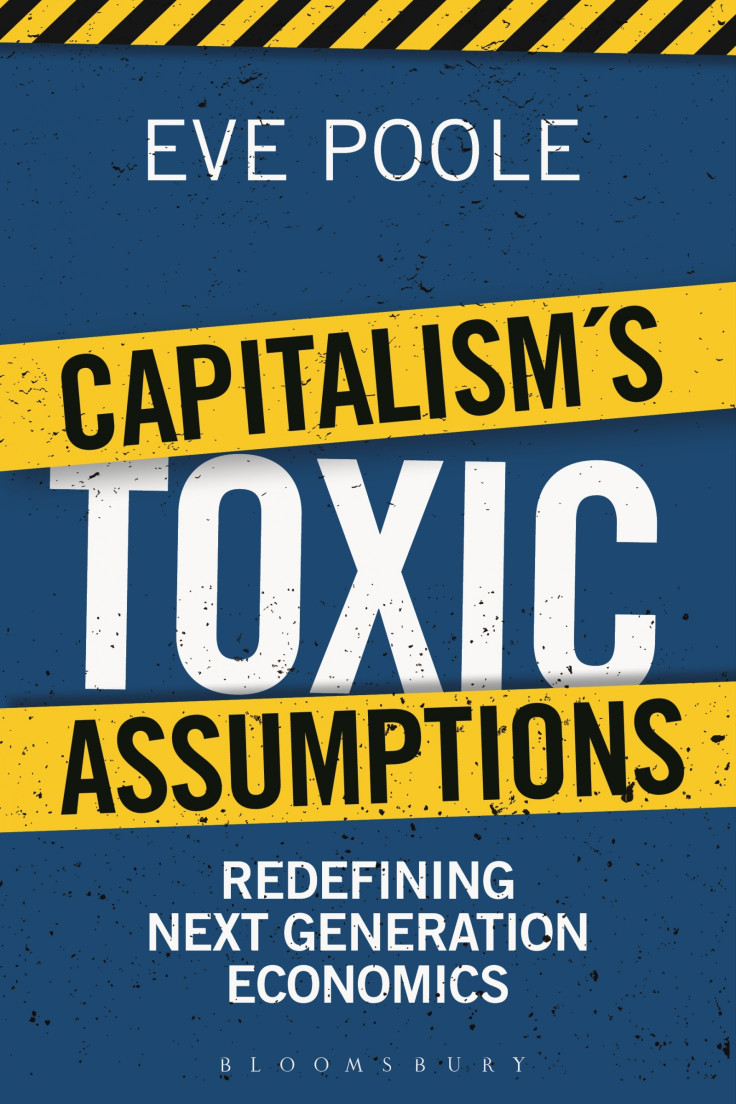Eve Poole: Economics should be virtuous and about instinctively doing good for the sake of doing good
This is the last in a series of three exclusive extracts from the book Capitalism's Toxic Assumptions: Redefining Next Generation Economics by Eve Poole, published by Bloomsbury Publishing and Ashridge Business School on 26 March. To order a copy at 20% off, please visit the Bloomsbury website or call 01256 302 699 and quote the reference 'GLR DK8' when you place your order. Offer ends 5 April.

One of the crowning achievements of the Enlightenment was the wild success of utilitarianism as the dominant ethical narrative. Jeremy Bentham's famous maxim of the "greatest good for the greatest number" seems so wise, modern democracies are still built squarely on this ethic.
Utilitarianism has proved particularly resilient as an ethical system because the system of law it produces can be shown to be generally in the public good and citizens tend to understand the need for objectivity at state level. And the fact that it is not formally associated with any particular religion makes it ideal for those Westernised countries who seek a secular state.
Its emphasis on the rational behaviour of human agents and its fit with scientific empiricism made it ideal as a founding idea for economics, such that utility has become the dominant model within the discipline.
Utilitarianism's overemphasis on the pragmatics of outcomes appeals objectively but it is toxic because it fails to honour something deep in the human psyche. This means it tends to run into public outrage at inconvenient moments, which can have a catastrophic effect on brand or company reputation.
Negativity towards phone-tapping
One example might be the universally negative reaction to the phone-tapping of various public figures by the media "in the public interest", and a similar reaction to moves by the authorities to "listen in" to electronic communication in order to pre-empt acts of terrorism. In both cases, philosophically speaking, the ends justify the means but this does not mollify the public.
Utilitarianism also locks morality into a habit of thinking on a decision-by-decision basis, taking no larger view about ethics. As such, it is a perfect bedfellow for a world view that has tended to see the market as an accumulation of individual transactions, super-coordinated by a retro-fitted and benevolent "invisible hand", but it is an incomplete narrative for the economy as a whole.
"Economic Man", that wholly rational utility-seeking machine, may be a useful device for mathematical modelling but is not a particularly healthy reading of the nature of humanity.

But how might both individuals and companies become more ethically healthy? One fruitful avenue of enquiry is the rebirth of the Aristotelian idea of virtue ethics. This is an area often contrasted with rule or consequence-based ethics on the grounds that it is less about calculating the merits of individual decisions or transactions and more about habits or underlying – and therefore more durable – character traits.
If someone is in trouble, rule-based ethicists will help because they subscribe to a maxim that says the equivalent of "'do as you would be done by". Consequentialists will help, because doing so will increase the utility of the person in trouble, and possibly their own in demonstrating their altruism. Virtue ethicists would help, because to do so would be the right thing to do, and would allow them to exercise the moral practice of benevolence.
Developing moral character
The argument may seem rather circular, in that character is built up over time and, as the cumulative effect of a series of decisions and behaviours, could in theory be informed by either a rule or consequence-based ethic. But the emphasis in virtue ethics is not about optimising individual decision-making, it is about the development of moral character. As Aristotle puts it in his Nicomachean Ethics: "We become just by doing what is just, temperate by doing what is temperate, and brave by doing brave deeds."
Virtue ethics is often contrasted with rule or consequence-based ethics on the grounds that it is less about calculating the merits of individual decisions or transactions, and more about habits or underlying – and therefore more durable – character traits.
So it might be that, in pursuing this overall objective, an individual decision or two might not make sense in a one-off context, but make sense in the context of developing the right moral character.
For example, having monitored the shift patterns of the local traffic wardens, normally I might calculate that if I park illegally ten minutes before a parking restriction lifts, I am unlikely to be caught but could maximise my own utility in terms of convenience and proximity.
But if I am schooling myself in virtue, I might instead drive around the block, or park somewhere legal, in order to reinforce my habits of virtue, perhaps "making a virtue" out of the walk back, too.
'Good for the character'
The very British exhortation that one should do unpleasant things such as play hockey in the rain because it is "good for the character" is a case in point. This focus on character emphasises the development of morality over time, and so provides a long-term agenda for living an ethical life that is far richer than those offered by its competitor narratives.
Rule-based ethicists would improve themselves by getting ever better at learning and interpreting rules, while diligent consequentialists hone their morality by becoming more skilled at reading the future in order to improve their ability to calculate outcomes. Both approaches are useful, but limited. Virtue ethics, in comparison, is a much harder discipline, because it requires a commitment to the development of a whole range of virtues, many of which may or may not see frequent use.
American philosopher Robert Solomon explains the importance of this, in the context of dealing with the knotty problem of the findings of a variety of experiments that show humans in a very bad light. The most famous of these experiments are probably those conducted by psychologist Stanley Milgram in the 1960s, and were designed to understand why, in the context of the Holocaust, so many people behaved so appallingly.

The Milgram experiments involved a set of volunteers teaching word pairs to actors they thought were fellow volunteers. If the "pupil" got an answer wrong, the "teacher" had to administer an electric shock, with the voltage increasing in 15-volt increments for each wrong answer.
The actors were issued with tape-recorded reactions (screams, etc) and encouraged to bang on the wall and protest as the shocks increased, then to fall silent. In some versions of the experiment, the teacher was pre-warned that the pupil suffered from a heart condition.
While many of the teachers did respond to these protests, and questioned the purpose of the experiment, most continued after being told firmly by the experimenter that they must go on, and that they would not be held responsible for their actions.
The experiment was halted only if the teacher continued to question the experimenter after being told to continue four times, or when they had administered the maximum 450-volt shock three times in succession.
In a poll conducted beforehand, Milgram established a general prediction that an average of just over 1% of the "teachers" would progress the experiments beyond a very strong shock. In fact, Milgram found 65% of the teachers administered the experiment's final massive 450-volt shock, even though many of them were clearly very uncomfortable about doing so, and every single one of them questioned the experiment at some point.
Character trait conflicts arise
On the face of it, this shows a worrying capacity for cruelty. Solomon argues, though, that experiments such as these serve to show in practice how hard it is to prioritise warring virtues, particularly if one is more "supple" than the other. He sees it not as a lack of character in the "teachers", but actually a conflict of character traits, a bit like the old sign outside a Boston pub that reads "temperance in moderation".
In the Milgram experiments, the war was between the virtue of obedience to authority and the virtue of human compassion. In the average human life, there are many more opportunities to practise obedience to authority than there are to practice compassion, rendering this virtue commonly less supple than the virtue of obedience.
This means a virtue ethicist will be at pains to find opportunities to cultivate all of the virtues lest some become flabby with misuse and thus inoperable in practice. This proactivity is one key difference between a virtues approach and a rules-or-outcomes-based morality, because these are by definition a reaction to a given situation or dilemma.
The latest thinking from neurobiology about the "plasticity" of the brain would support the idea that virtue needs to be actively practiced in order for it to stick. It used to be assumed brain structure was largely fixed from childhood and that our grey matter degenerated with age. Neither of these assumptions now appears to be true.
Brain remapping
In fact, research suggests older people do not so much forget things as stop paying attention in the first place, so they fail to form retrievable memories. Similarly, while physical balance can degenerate, what is more common in old age is confidence degenerates, such that older people take to wearing increasingly comfortable shoes and shuffling around.
Because the brain contains numerous "maps" to govern our functioning, it draws and redraws them as maps that are not used tend to lapse.
Virtue is a habit as well as an orientation, and virtue ethics is about developing the sort of character that leans towards virtue, until goodness becomes an instinct.
So if the feet stop picking up information from the ground, the plastic brain stops updating its maps for walking and balance, until eventually the spare capacity gets colonised by another function of the brain, and the lack of balance becomes a self-fulfilling prophecy.
This is the thinking behind advice about walking around the house in bare feet and research suggests people living in towns with cobbled streets tend to be healthier, because walking on cobbles delivers the simultaneous benefits of free acupuncture and a brain workout.
According to this logic, if a virtue is not practised, our "map" for the virtue lapses. The development of moral character can therefore be seen as the acquisition of a skill just like any other. Virtue is a habit as well as an orientation and virtue ethics is about developing the sort of character that leans towards virtue, until goodness becomes an instinct.
The Dreyfus model
Ethicists such as Matt Stichter have argued the Dreyfus model of skill acquisition applies to the acquisition of virtue as much as it does to the learning of a craft. The Dreyfus model, commissioned to assist the US Air Force with emergency training, describes a series of levels.
As the learner moves from Novice through Competence and Proficiency to Expert, they use rules, until these become principles, and finally intuitions, before they develop the kind of mastery that enables the kind of instinctively skilful behaviour that often rewrites the original rules.
Another way to describe this process is the hoary old training favourite about moving from unconscious incompetence through conscious incompetence and conscious competence to unconscious competence. It is only by persisting in the clunky process of crunching the gears and stalling that one day you turn up at work with no real memory of your drive there because you have been on autopilot.
Looking beyond the habits of Western systems of morality, the world contains a wide range of different solutions to the question of how best to live a good life, and what therefore should be the goal of society. The world's wisdom traditions, often preserved in religious writings, most commonly use stories rather than rules to communicate guidance about individual and communal living.
Looking beyond the habits of Western systems of morality, the world contains a wide range of different solutions to the question of how best to live a good life, and what therefore should be the goal of society
These fables, parables, legends, myths, tales, proverbs and aphorisms often echo each other across the geographies, suggesting the existence of ancient shared narratives on matters like good and evil.
These traditions all suggest a slightly more interested ethic than one which, like the economist's view of "utility", privileges the individual's freedom over the common good.
Equally, they all resist simplicity, often preserving for thousands of years deep ambiguities and contradictions, and few traditions favour a monolithic approach or one particular ethical school. This would seem to suggest the neatness of utilitarianism and its current dominion is historically anomalous, and messier systems such as virtue ethics - which are concerned with both means and ends, and with both the individual and society - are ultimately more likely to prove fruitful.
As we discover more about brain plasticity, this need for constant puzzling makes more sense, as a vital discipline to keep our ethical maps fresh. It would be exciting to see how a regulatory framework built on this kind of thinking would differ from the oversimplified tick-box tests that are how most of our leading corporations currently measure virtue.
© Copyright IBTimes 2025. All rights reserved.






















